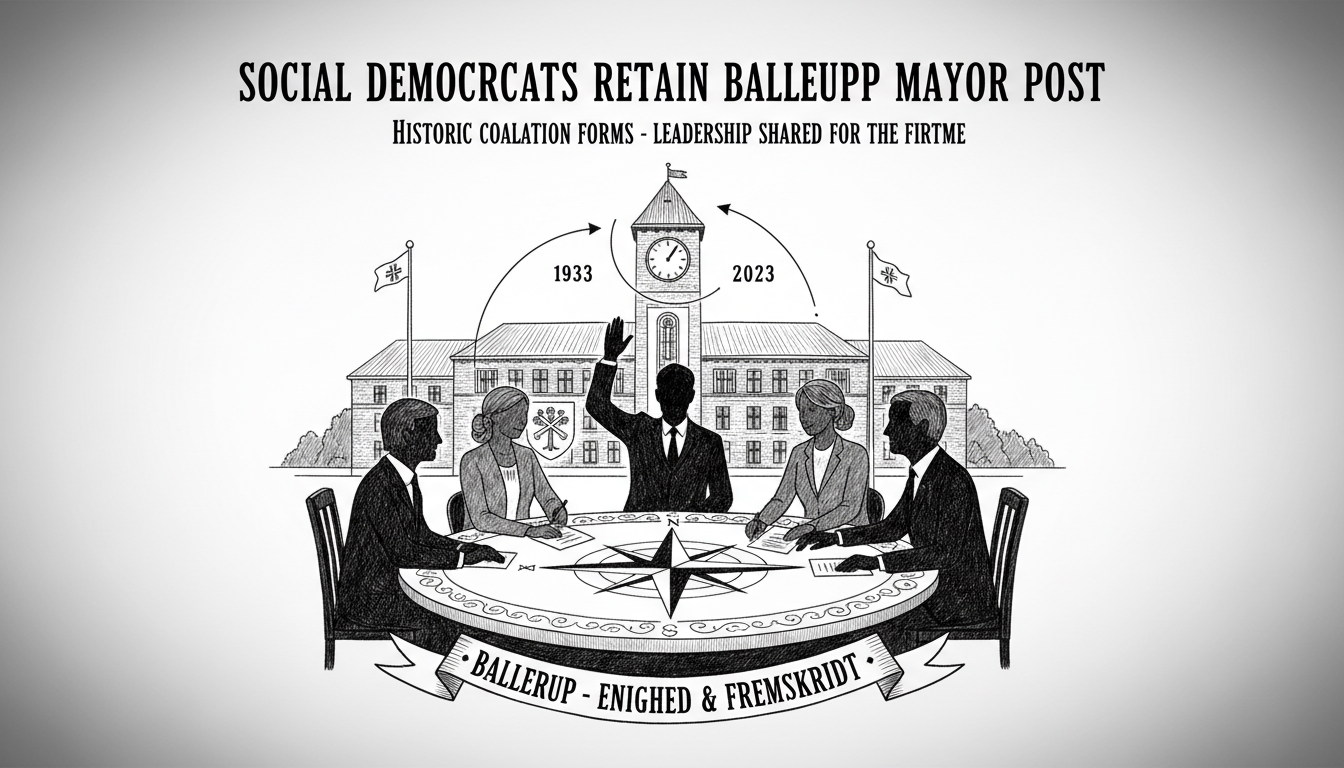Jesper Würtzen from the Social Democrats will continue serving as mayor of Ballerup Municipality. The decision came after late-night negotiations that resulted in a new governing coalition. The Social Democrats lost their absolute majority in the recent local elections but successfully formed a coalition with three other parties.
The new governing agreement includes the Socialist People's Party, the Social Liberals, and the Red-Green Alliance. This marks a significant shift in Ballerup's political landscape. For the first time in the municipality's history, leadership positions and responsibilities will be distributed across multiple parties.
Simon Knudstrup from the Socialist People's Party had previously announced his candidacy for mayor. He aimed to create an alternative majority and take the mayor position from Würtzen. Despite these ambitions, the negotiations resulted in a different outcome that maintains the Social Democratic leadership.
The Socialist People's Party representative explained their participation in the coalition. They negotiated to establish a new political direction and culture in Ballerup. The party secured two chairman positions within the new municipal structure.
Würtzen expressed satisfaction with the broad agreement reached for Ballerup's new administration. He emphasized the importance of the coalition spanning multiple political parties. The agreement provides stability for the municipality's future governance.
Election results show interesting voter patterns. The Socialist People's Party received 11.9 percent of votes, gaining 4.8 percentage points. The Social Democrats secured 40.1 percent of votes but lost 10.7 percentage points from their previous result.
Personal popularity played a role in the outcome. Exactly 17.2 percent of Ballerup voters cast their ballot directly for Jesper Würtzen. This personal vote demonstrates his continued support among constituents.
Ballerup has a long history of Social Democratic leadership. Würtzen has served as mayor of this Copenhagen suburban municipality since 2012. More remarkably, the Social Democrats have held the mayor position continuously since 1933.
The municipality has experienced remarkable political stability over decades. Since 1952, only four different individuals have served as mayor of Ballerup. This consistency is unusual in Danish municipal politics.
With Ballerup's coalition now confirmed, only four Danish municipalities remain without settled leadership. These include Helsingør, Lolland, Middelfart, and Sorø. Negotiations continue in these locations to form workable governing coalitions.
The Ballerup agreement reflects broader trends in Danish local politics. Coalition-building has become increasingly necessary as single-party majorities grow rarer. This requires parties to find common ground across traditional political divides.
Local government in Denmark holds significant responsibility for welfare services, including schools, elderly care, and local infrastructure. The stability of Ballerup's new coalition will directly impact service delivery to the municipality's approximately 50,000 residents.
The outcome demonstrates that established political forces can adapt to changing electoral landscapes. Despite losing their majority, the Social Democrats maintained leadership through skillful coalition negotiations. This suggests traditional parties still hold considerable influence in Danish local politics.

